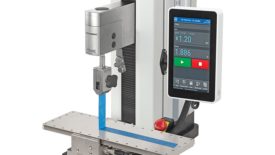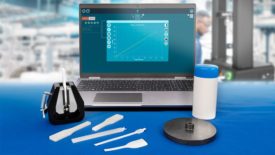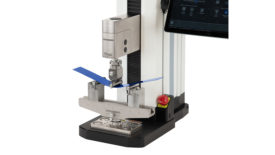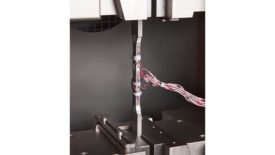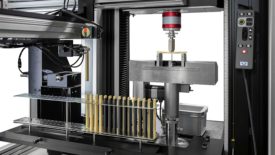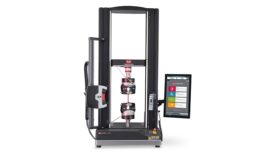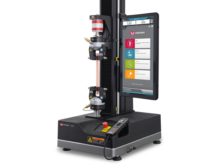Home » Keywords: » materials testing
Items Tagged with 'materials testing'
ARTICLES
Quality 101
Materials testing submits a material or product to a thorough, in-depth "check-up" to ensure overall quality.
Read More
From the Editor | Darryl Seland
Where Does it End? Usually Depends on Where You Start
October 26, 2023
Test & Inspection
What Product Quality Testing is Made of
Quality materials are the route to quality products.
October 19, 2023
NDT | Compression Testing
Understanding Compression Testing and Flexural Modulus, a Crucial Aspect of Material Strength Evaluation
Advancements in materials science and engineering breakthroughs are possible through the science of compression testing.
October 6, 2023
Test & Inspection
Important Considerations for Tensile Testing Equipment in Aerospace Applications
The most powerful tool a company has is the ability to follow a component failure back to the batch of material it was made from.
August 3, 2023
Quality 101
Automation in Materials Testing
There are many different parts of a universal testing machine that can be partially or fully automated depending on the specific needs of your lab.
May 15, 2023
NDT | Materials Testing
Extensometry in Materials Testing Explained
An extensometer is a device used to measure changes in the length of an object, or sample in the materials testing world.
April 11, 2023
Materials Testing
The Relationship Between Residual Stress State and Quality
Designing in, manufacturing for, and measuring residual stresses may be the most effective way to produce quality parts.
November 14, 2022
Test & Inspection
Reduce Testing Downtime through Quality Measures
Testing system downtime causes shipment delays, upset customers, and lost revenue.
August 1, 2022
Test & Inspection
A Guide to Mechanical Testing of Paper and Plastic Packaging Materials
A simple tensile test can be used as a quality control measure to ensure the materials meet internal criteria, or for comparison purposes.
July 3, 2021
Get our new eMagazine delivered to your inbox every month.
Stay in the know with Quality’s comprehensive coverage of the manufacturing and metrology industries.
SUBSCRIBE TODAY!Copyright ©2024. All Rights Reserved BNP Media.
Design, CMS, Hosting & Web Development :: ePublishing
